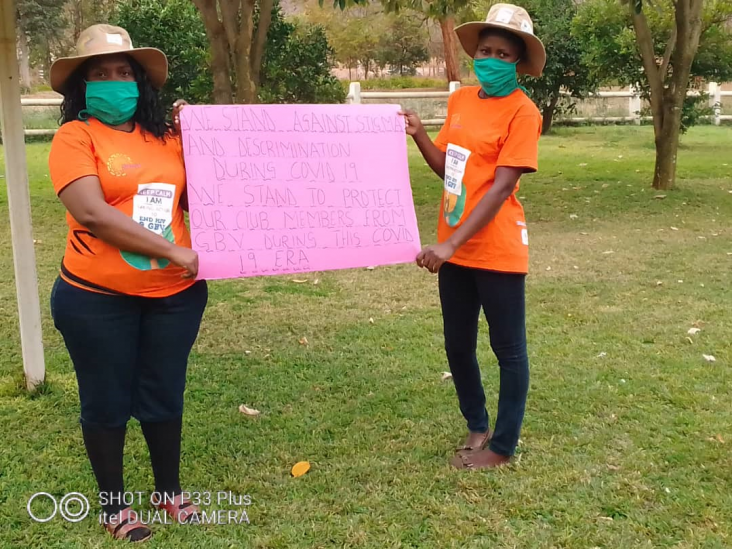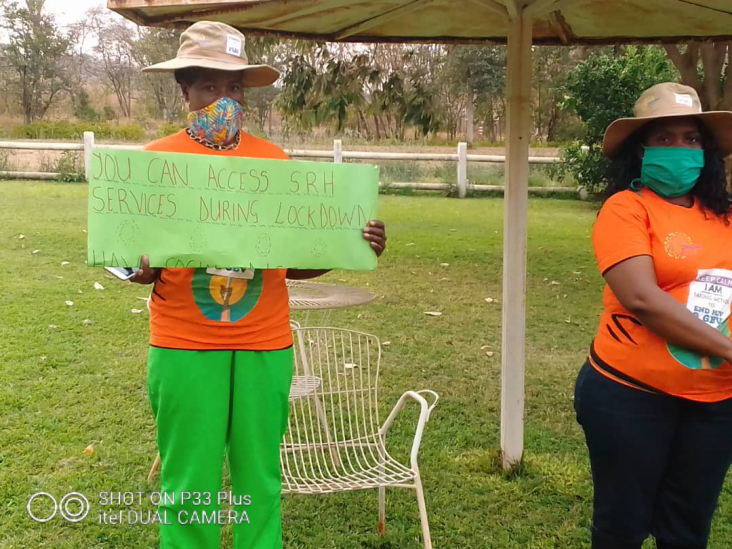- What We Do
- Agriculture and Food Security
- Democracy, Human Rights and Governance
- Economic Growth and Trade
- Education
- Environment and Global Climate Change
- Gender Equality and Women's Empowerment
- Global Health
- Humanitarian Assistance
- Transformation at USAID
- Water and Sanitation
- Working in Crises and Conflict
- U.S. Global Development Lab
Speeches Shim
In Zimbabwe, 17 percent of girls’ first experience of sexual intercourse is physically forced or coerced.1 Of girls in Zimbabwe who experienced violence before the age of 18, only 17 percent sought post-violence care and only 14 percent of the total received post-violence care.2 Failing to access post-violence care can increase survivors’ risk of acquiring HIV and negatively impact HIV clinical outcomes, including antiretroviral therapy (ART) adherence, as well as result in other issues related to their physical and mental health.
Experiences with violence are inextricably linked to HIV risk among adolescent girls and young women (AGYW). USAID’s Office of HIV/AIDS work supports adolescent girls and young women by ensuring they receive the support they need to be healthy and safe through the DREAMS (Determined, Resilient, Empowered, AIDS-free, Mentored, and Safe) partnership. DREAMS is a public-private partnership program that aims to reduce rates of HIV among adolescent girls and young women in countries with the highest HIV burdens. The DREAMS partnership delivers a core package of layered, evidence-based interventions that directly address the structural drivers that increase HIV risk, such as gender-based violence (GBV). Evidence-based violence-prevention interventions, most of which were created in or adapted for low- and middle-income countries, are fully integrated into the DREAMS core package.
Zimbabwe is one of 16 sub-Saharan African countries that implements DREAMS. USAID, through FHI360, delivers a comprehensive HIV and sexual violence prevention curriculum to vulnerable and at-risk AGYW. The program strengthens AGYW resilience and teaches them the knowledge and skills they need to lead safe and healthy lives, which reduces their vulnerability to HIV and violence. These activities provide AGYW with the opportunity to strengthen their relationships with their peers, parents/caregivers, and communities; develop skills to build and navigate interpersonal relationships; and increase their agency to seek health assistance, including HIV testing and post-violence care.
As the government placed restrictions on mobility due to COVID-19 in Zimbabwe, many adolescent girls and young women were forced to stay at home with their abusers, leading to a drastic increase in GBV in the country. Since the beginning of the COVID-19 lockdown in March, Zimbabwe experienced a 60 percent increase in reported cases of GBV, with the national GBV Hotline, Musasa, receiving a total of 4,616 GBV-related calls during the lockdown period of March 30 to July 5.3 Health facilities needed to prioritize COVID-19 service provision, making it difficult for survivors to access post-violence clinical care and non-clinical violence response programs. Committed to continuing to provide girls with the support they need, USAID through FHI360 developed an innovative solution: the Sexual and Reproductive Health (SRH) Referrals Network, a village-based network of DREAMS users of SRH programs who support their peers to access health care.
Located at strategic points within villages, DREAMS Ambassadors (DREAMS participants who lead community advocacy) educate girls and women on sexual and reproductive health and GBV at various locations, including water points, firewood collection areas, or other places they frequent to take care of household chores. This approach of bringing GBV programs and knowledge sharing to locations where girls and women already frequent in their daily routines ensures continuity of support, and minimizes contact with health facilities, thus limiting risk of acquiring COVID-19. These Ambassadors not only create demand, but also document the support needed, which inform SRH care delivery plans at the community level.

Post-violence care is included within the SRH Referrals Network’s service package. A GBV program directory is used to connect girls and young women to violence response support, including psychosocial support, temporary shelter, and legal help. For clients who experienced violence and required post-exposure prophylaxis (PEP) to prevent them from acquiring HIV, DREAMS Ambassadors immediately referred and accompanied them to health facilities. The SRH Referrals Network also works with providers, including the police’s Victim Friendly Unit, allowing the DREAMS Ambassadors to be mobile despite COVID-19 restrictions. From April to September 2020, almost 432 girls received post-violence care, more than 400 percent of the expected number, highlighting the increased need during this time. Adopting a village-based approach made critical post-violence care and sexual health support available to clients who needed it the most.
Through the DREAMS program and the SRH Referrals Network, thousands of girls and young women in Zimbabwe are able to receive the GBV response support they need, at a time that many need it most.

1 https://www.togetherforgirls.org/zimbabwe/
2 https://www.togetherforgirls.org/zimbabwe/
3 https://reports.unocha.org/en/country/zimbabwe/card/2XxB9GOV93/

Comment
Make a general inquiry or suggest an improvement.